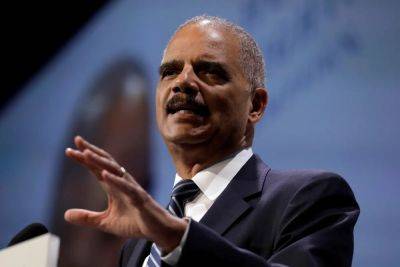162 Years Later, a Medal of Honor for Two Civil War Train Raiders
The plan was bold, but ultimately doomed.
In the spring of 1862, a small group of Union Army saboteurs came up with a daring idea to cut off Confederate supply lines near Chattanooga by stealing a train, tearing up railroad tracks, burning bridges and cutting down telegraph wires — which would have denied means of travel and communication to enemy forces in the area.
Dressed in plain clothes, they launched their mission in April, sneaking behind enemy lines in Georgia, taking over a locomotive near Marietta and wreaking havoc for seven hours along miles of railway in an effort to help take the battle deep into Tennessee.
But the stolen train, called “the General,” ran out of fuel 18 miles from Chattanooga, according to a U.S. Army account of the heist, which became known as the Great Locomotive Chase. The Union soldiers and civilians who took part in the mission fled, but all were captured after less than two weeks on the run.
Most were sent to prisoner of war camps. The rest were hanged as spies.
In 1863, six survivors of the raid were the first American soldiers awarded the Medal of Honor, the nation’s highest decoration for valor in combat, which had been authorized by President Abraham Lincoln the year before.
In all, 19 of the men received the Medal of Honor in the years that followed. But two soldiers who were executed by Confederates soon after the mission were never recognized.







